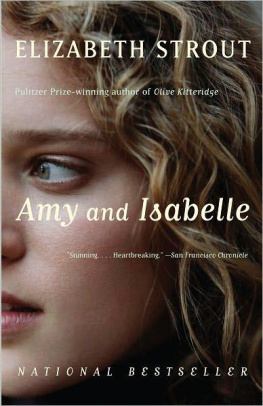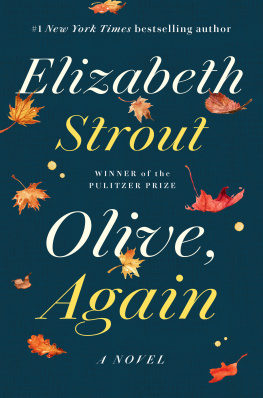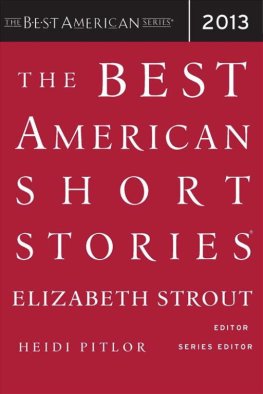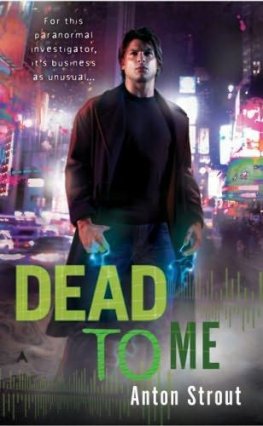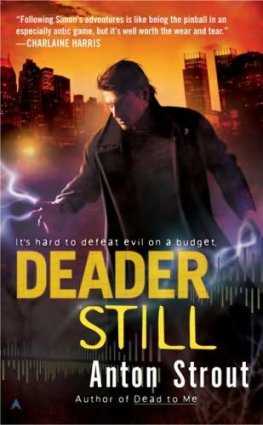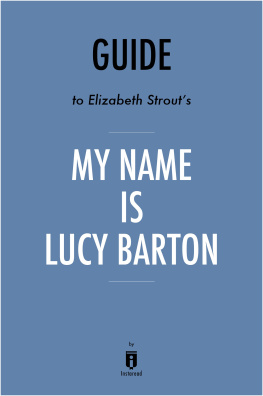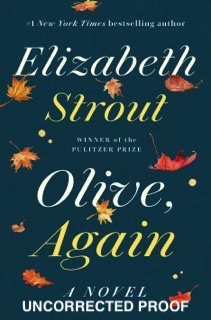Elizabeth Strout - Anything Is Possible
Here you can read online Elizabeth Strout - Anything Is Possible full text of the book (entire story) in english for free. Download pdf and epub, get meaning, cover and reviews about this ebook. year: 2017, publisher: Random House, genre: Prose. Description of the work, (preface) as well as reviews are available. Best literature library LitArk.com created for fans of good reading and offers a wide selection of genres:
Romance novel
Science fiction
Adventure
Detective
Science
History
Home and family
Prose
Art
Politics
Computer
Non-fiction
Religion
Business
Children
Humor
Choose a favorite category and find really read worthwhile books. Enjoy immersion in the world of imagination, feel the emotions of the characters or learn something new for yourself, make an fascinating discovery.

- Book:Anything Is Possible
- Author:
- Publisher:Random House
- Genre:
- Year:2017
- Rating:5 / 5
- Favourites:Add to favourites
- Your mark:
- 100
- 1
- 2
- 3
- 4
- 5
Anything Is Possible: summary, description and annotation
We offer to read an annotation, description, summary or preface (depends on what the author of the book "Anything Is Possible" wrote himself). If you haven't found the necessary information about the book — write in the comments, we will try to find it.
Anything Is Possible — read online for free the complete book (whole text) full work
Below is the text of the book, divided by pages. System saving the place of the last page read, allows you to conveniently read the book "Anything Is Possible" online for free, without having to search again every time where you left off. Put a bookmark, and you can go to the page where you finished reading at any time.
Font size:
Interval:
Bookmark:
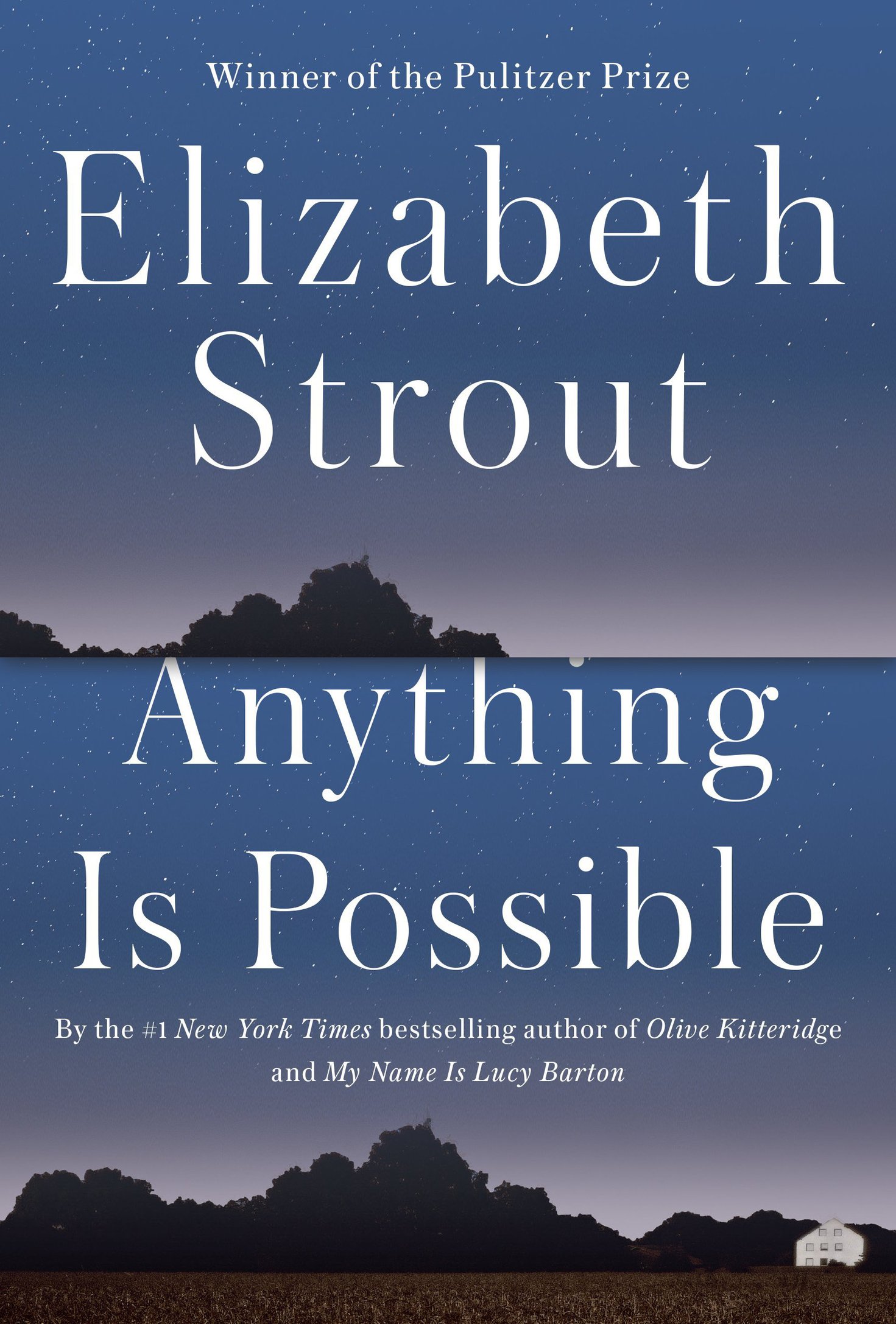
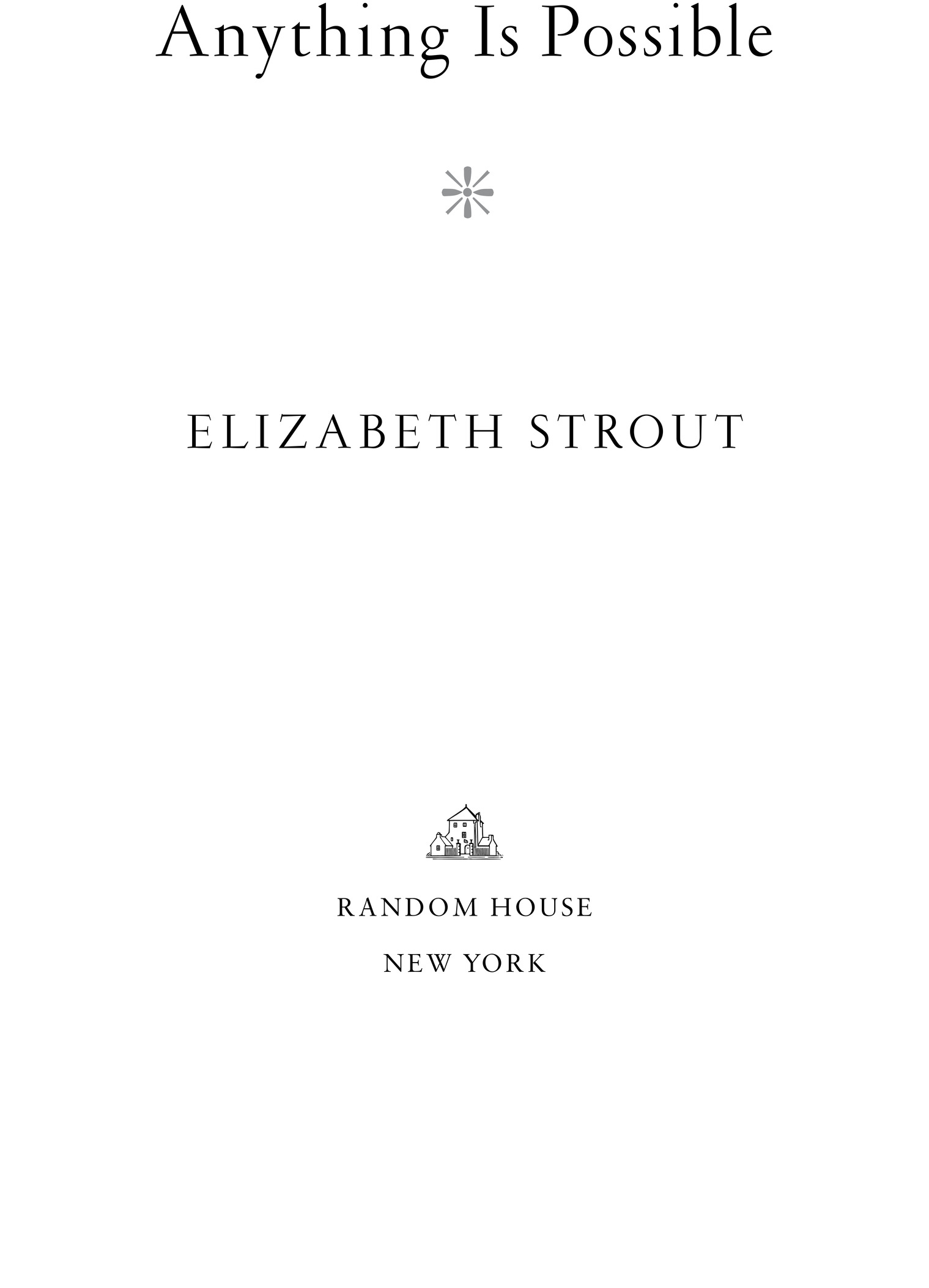

Anything Is Possible is a work of fiction. Names, characters, places, and incidents are the products of the authors imagination or are used fictitiously. Any resemblance to actual events, locales, or persons, living or dead, is entirely coincidental.
Copyright 2017 by Elizabeth Strout
All rights reserved.
Published in the United States by Random House, an imprint and division of Penguin Random House LLC, New York.
R ANDOM H OUSE and the H OUSE colophon are registered trademarks of Penguin Random House LLC.
Snow-Blind was published, in slightly different form, in the Spring 2013 issue of Virginia Quarterly Review.
L IBRARY OF C ONGRESS C ATALOGING-IN- P UBLICATION D ATA
Names: Strout, Elizabeth, author.
Title: Anything is possible : fiction / Elizabeth Strout.
Description: New York : Random House, [2017]
Identifiers: LCCN 2016020620 | ISBN9780812989403 |
Ebook ISBN9780812989427
Subjects: LCSH: Mothers and daughtersFiction. | Brothers and sistersFiction. | FamiliesFiction. | Domestic fiction.
Classification: LCC PS3569.T736 A6 2017 | DDC 813/.54dc23
LC record available at https://lccn.loc.gov/2016020620
randomhousebooks.com
Book design by Dana Leigh Blanchette, adapted for ebook
Cover design: Greg Mollica
Cover image: Gallery Stock
v4.1
ep
T ommy Guptill had once owned a dairy farm, which hed inherited from his father, and which was about two miles from the town of Amgash, Illinois. This was many years ago now, but at night Tommy still sometimes woke with the fear he had felt the night his dairy farm burned to the ground. The house had burned to the ground as well; the wind had sent sparks onto the house, which was not far from the barns. It had been his faulthe always thought it was his faultbecause he had not checked that night on the milking machines to make sure they had been turned off properly, and this is where the fire started. Once it started, it ripped with a fury over the whole place. They lost everything, except for the brass frame to the living room mirror, which he came upon in the rubble the next day, and he left it where it was. A collection was taken up: For a number of weeks his kids went to school in the clothes of their classmates, until he could gather himself and the little money he had; he sold the land to the neighboring farmer, but it did not bring much money in. Then he and his wife, a short pretty woman named Shirley, bought new clothes, and he bought a house as well, Shirley keeping her spirits up admirably as all this was going on. Theyd had to buy a house in Amgash, which was a run-down town, and his kids went to school there instead of in Carlisle, where they had been able to go to school before, his farm being just on the line dividing the two towns. Tommy took a job as the janitor in the Amgash school system; the steadiness of the job appealed to him, and he could never go to work on someone elses farm, he did not have the stomach for that. He was thirty-five years old at the time.
The kids were grown now, with kids of their own who were also grown, and he and Shirley still lived in their small house; she had planted flowers around it, which was unusual in that town. Tommy had worried a good deal about his children at the time of the fire; they had gone from having their home be a place that class trips came toeach year in spring the fifth-grade class from Carlisle would make a day of it, eating their lunches out beside the barns on the wooden tables there, then tromping through the barns watching the men milking the cows, the white foamy stuff going up and over them in the clear plastic pipesto having to see their father as the man who pushed the broom over the magic dust that got tossed over the throw-up of some kid who had been sick in the hallways, Tommy wearing his gray pants and a white shirt that had Tommy stitched on it in red.
Well. They had all lived through it.


This morning Tommy drove slowly to the town of Carlisle for errands; it was a sunny Saturday in May, and his wifes eighty-second birthday was just a few days away. All around him were open fields, the corn newly planted, and the soybeans too. A number of fields were still brown, as theyd been plowed under for their planting, but mostly there was the high blue sky, with a few white clouds scattered near the horizon. He drove past the sign on the road that led down to the Barton home; it still said SEWING AND ALTERATIONS, even though the woman, Lydia Barton, who did the sewing and alterations had died many years ago. The Barton family had been outcasts, even in a town like Amgash, their extreme poverty and strangeness making this so. The oldest child, a man named Pete, lived alone there now, the middle child was two towns away, and the youngest, Lucy Barton, had fled many years ago, and had ended up living in New York City. Tommy had spent time thinking of Lucy. All those years she had lingered after school, alone in a classroom, from fourth grade right up to her senior year in high school; it had taken her a few years to even look him in the eye.
But now Tommy was driving past the area where his farm had beenthese days it was all fields, not a sign of the farm was leftand he thought, as he often thought, about his life back then. It had been a good life, but he did not regret the things that had happened. It was not Tommys nature to regret things, and on the night of the firein the midst of his galloping fearhe understood that all that mattered in this world were his wife and his children, and he thought that people lived their whole lives not knowing this as sharply and constantly as he did. Privately, he thought of the fire as a sign from God to keep this gift tightly to him. Privately, because he did not want to be thought of as a man who made up excuses for a tragedy; and he did not want anyonenot even his dearly beloved wifeto think he would do this. But he had felt that night, while his wife kept the children over by the roadhe had rushed them from the house when he saw that the barn was on fireas he watched the enormous flames flying into the nighttime sky, then heard the terrible screaming sounds of the cows as they died, he had felt many things, but it was just as the roof of his house crashed in, fell into the house itself, right into their bedrooms and the living room below with all the photos of the children and his parents, as he saw this happen he had feltundeniablywhat he could only think was the presence of God, and he understood why angels had always been portrayed as having wings, because there had been a sensation of thatof a rushing sound, or not even a sound, and then it was as though God, who had no face, but was God, pressed up against him and conveyed to him without wordsso briefly, so fleetinglysome message that Tommy understood to be:
Font size:
Interval:
Bookmark:
Similar books «Anything Is Possible»
Look at similar books to Anything Is Possible. We have selected literature similar in name and meaning in the hope of providing readers with more options to find new, interesting, not yet read works.
Discussion, reviews of the book Anything Is Possible and just readers' own opinions. Leave your comments, write what you think about the work, its meaning or the main characters. Specify what exactly you liked and what you didn't like, and why you think so.

